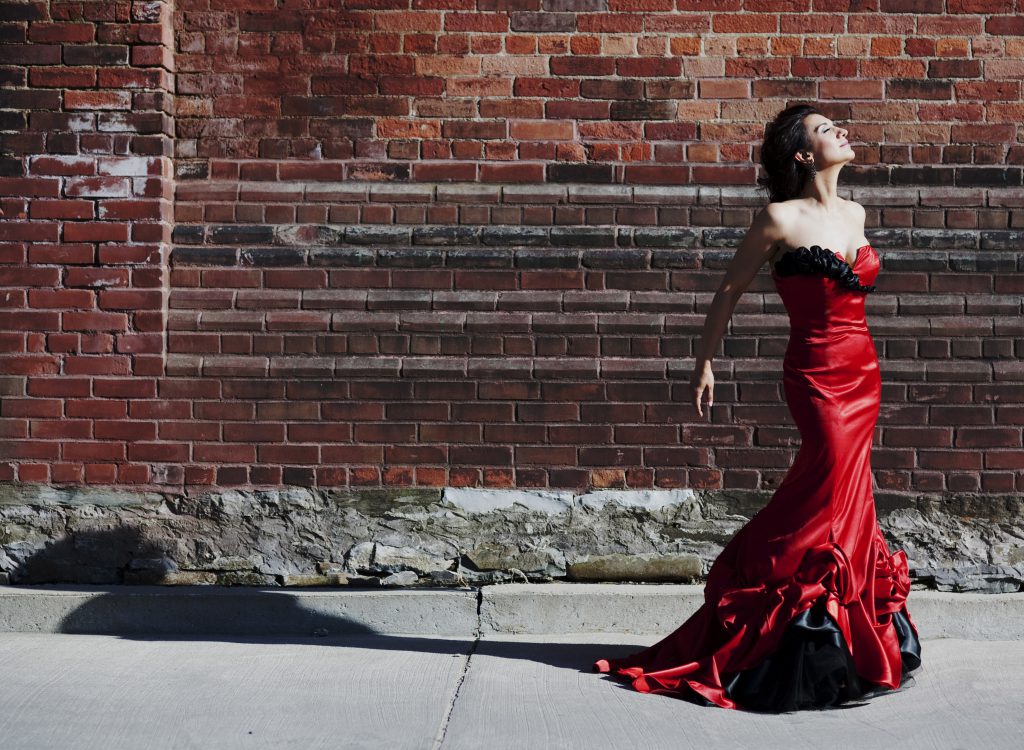In an age mad for opera, in a city obsessed with thrills, the mere mention of their names on a playbill virtually guaranteed a full house. Italian soprano Francesca Cuzzoni and mezzo Faustina Bordoni, recruited by George Frideric Handel to headline in some of his most glittering West End productions, sent jaded London critics scrambling for adjectives and ecstatic audiences leaping to their feet.
In a delightful celebration of the musical life and times of eighteenth century London’s foremost leading ladies, Tafelmusik, joined by soprano Isabel Bayrakdarian, flip through the pages of operatic history to highlight what would become an infamous grudge match.
The story of the two super-singers is every bit as sensational as their music.
By the time Bordoni arrived in the British capital in 1726, Cuzzoni had already staked her claim to the throne of reigning diva-in-residence at the city’s first opera palace, the King’s Theatre. The stage was set for a battle royale.
The first skirmish played out during performances of Alessandro. With an eye on the outburst of press attention that his new opera seria was certain to incite, Handel had craftily embedded an equal number of virtuoso soprano arias in the work, one for each of Alexander the Great’s competing lovers. By all accounts, Borodoni and Cuzzoni acquitted themselves valiantly in vocal combat, provoking their defenders to catcalls and jeers during appearances of one or the other enemy star on stage. By the end of the 1726 season, passions had become preposterously inflamed. What happened next was inevitable.
Handel’s arch competitor at the time, composer Giovanni Bononcini, had hired the feuding prima donnas to appear in his own blockbuster, Astianatte, at the Haymarket Theatre literally across the street. At the final performance, mounting levels of disruptive antics in the stalls boiled over into fistfights, Bordoni vs. Cuzzoni camps. Whether Faustina and Francesca came to blows themselves is questionable given the absence of firsthand reports but if ever a story deserves to be true, the uproarious saga of the epic rivalry between the illustrious Queens surely qualifies for legendary status.
Tafelmusik’s lively evocation of the infamous soprano wars brilliantly spotlights Bayrakdarian in both Baroque personae, part one of the evening’s adventures primarily devoted to arias custom-crafted for Bordoni, part two showcasing pieces expressly written for Cuzzoni.
Sweeping on stage in a floor-length, firecracker red strapless gown by Toronto designer Rosemarie Umetsu, Bayrakdarian launched the first of four scheduled Koerner Hall appearances with Handel’s mischievous Bordoni hit, Brilla nell’alma (“In my soul shines”) from Alessandro. As mannered an A-B-A da capo aria as the selection may be, there is absolutely nothing staid about its succession of rapid razor-sharp trills. Bayrakdarian was breathtaking. The plaint that followed, Bononcini’s infinitely more mellow, Spera che questo cor (“You may well hope that”) from Astianatte, calls for pronounced cashmere-warm mezzo tints. Again Bayrakdarian, a lilting classic lyric soprano, amazed, summoning a much lower register than usual. Padre ingiuosto (“Unjust father”) concluded round one in the Rival Queens exhibition match. In 1730, Faustina married the Austro-Hungarian court composer, Johann Adolph Hasse who happily rewarded her with an enormously successful second career on the Continent. The aria plucked from his now seldom performed masterwork, Cajo Fabricio, astonishes, sung by Bayrakdarian with dark, sorrowful undertones repeatedly exploding into defiant coloratura.
Interspersed throughout both halves of Tafelmuisk’s reimagined diva wars, the crisp, 17-player period orchestra vigilantly guided by Jeanne Lamon cleverly hinted at various cities the Queens are known to have conquered during the course of their careers. A pair of attentively played extracts from Handel’s sweeping Concerto grosso in D Major eloquently spoke of London in part one. Bohemian-born Jan Dismas Zelenka’s less harmonious Sinfonia in A Minor subtly signposted Dresden where he worked as court composer prior to losing the post to Bordoni’s husband.
Reappearing after intermission in another Umetsu original, slate grey and stunning, Bayrakdarian movingly channeled Cuzzoni, opening with another glorious Astianatte showpiece, Deh lascia o core (“Oh, my heart”). The beauty and intensity of Bononcini’s lament was nothing short of exquisite. Two additional Handel arias, again drawn from Alessandro, followed. Nò più soffrir (“No more suffering”), a last minute addition, as Bayrakdarian playfully announced from the stage, intended to level the vocal odds, was poignantly reinforced by L’amor, che per te sento (“The love that I feel for you”). Both were superbly touching and tearful.
A luscious performance of Vivaldi’s Concerto for strings in G Minor, splendidly blended violins and violas balanced by bold continuo, lit the orchestral fuse in part two of the Queens. Venice knew both Cuzzoni and Bordoni well. A brisk concerto by Handel’s boyhood friend, later director of the Hamburg Opera, Telemann provided added impetus. Lastly, after much reference to George Frideric’s celebrity-building triumph, the overture to Alessandro rounded out an immensely rich program.
Summoned back to the stage by a standing ovation, Bayrakdarian posed an intriguing question to the audience. Given a chance to time travel, Bordoni or Cuzzoni? The roar of applause left no doubt. Francesca had won the competition. Ironically, the artist who had basked in more than her fair share of limelight in Baroque London and beyond was to end her days toiling, penniless and forgotten, in a button factory in Bologna. Bayrakdarian concluded with a deeply moving encore performance of Cleopatra’s shattering declaration of despair, Piangerò la sorte mia (“I will lament my fate”) from Giulio Cesare, a role Cuzzoni had originated.
This exceptionally fine Canadian singer owns our hearts.


